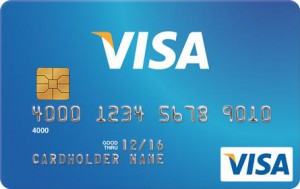The Ins and Outs of Credit Card Fraud
Credit card fraud may soon be a thing of the past, like dial up problems and floppy discs. The major credit card companies have set an October 2015 deadline to switch from swipe-and-sign cards people have in their wallets to a chip-reading system. This means Americans will have the same credit card protection as nearly everyone else in the world.
The magnetic strip on the credit card will disappear. Instead the card will just have a silver or gold square box on the front of the card with a microchip embedded into it. Instead of swiping the card at check out, the credit cardholder will just slid the chip into the chip reader to make the purchase. No signature needed. How will the purchase be validated? By entering a personal identification number, or PIN.
Data Breach and Credit Card Fraud
You might have received e-mails explaining your personal financial information was hacked. These emails have been sent to customers who made a purchase at a retailer like Target–and even the government. Credit card fraud generates approximately $1 billion dollars for scammers each year. 
Criminal fraud is the act of intending or actually deceiving someone via false representation of a fact. This false representation can be a lie or half-truth. What makes it fraud is the victim relies on the information to his legal detriment. Legal detriment refers to the victim relying on a promise made which alters his decisions and how he assumes liability. In criminal law, there are several types of fraud, including credit card fraud.
Credit card fraud is the act of using another person’s credit card without permission. Typically, this is done by making an unauthorized purchase with the individual’s credit card. Several types of credit card frauds exist. Common types include:
- Using a stolen or lost credit card
- Placing unauthorized charges on an existing account
- Identity theft
- Using a counterfeit credit card. This is a credit card that is fake, but with the correct information on it
- Acquiring the credit card fraudulently via the mail
- Using credit card information to make online purchases
The latter type of credit card fraud has skyrocketed because an individual doesn’t need a physical card to make a purchase, open an account, or obtain other credit cards.
Does credit card fraud only refer to credit cards? No. The term “credit card” is a broad term used to describe a debit card, credit card, or similar type of credit used to:
- Make a purchase
- Obtain financial gain with no intention of repayment
What is a Credit Card Fraud Scheme?
As you’ve just read, many forms of credit card fraud exists. In fact, there are more credit card schemes than can be listed here. So it’s important to note that credit card schemes fit into two basic categories:
- Account takeover
- Application fraud
When someone hijacks a credit card account, he literally takes over an existing credit card account. He obtains your personal information, then proceeds to become you. He changes the billing information to another address. He subsequently contacts the credit card issuer to report the card missing or lost to obtain a new card. Lastly, he makes fraudulent charges.
Application fraud is different. It refers to someone opening a credit card account in another individual’s name without permission. For example, he could find out enough information about you to complete a credit card application or create fake documents to open an account.
Ways Criminal Access Credit Card Accounts
Data breaches often come to mind when someone realizes she’s a victim of credit card fraud. After all, you hear about companies being hacked all the time online or in media reports. Of course, there are other ways to gather credit card information and fraudulently use it, such as:
- Obtaining information from a lost or stolen credit card
- Looking over a person’s shoulder as they make a transaction
- Stealing from the mailbox
- Going through trash
- Making fake phone calls to solicit information
- Search personal records
- Sending unsolicited emails to obtain personal information
New Credit Cards
It’s unclear when everyone in the United States will have the new micro-chipped credit card. Target has already announced it can accept the micro-chipped cards. The main reason for the move to get rid of the magnetic strip is to eliminate credit card fraud. The chips are harder to hack. However, credit card users still have to be vigilant to avoid having criminals access the card a different way.


Comments